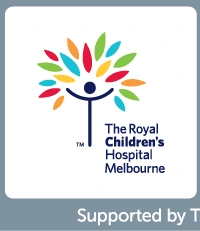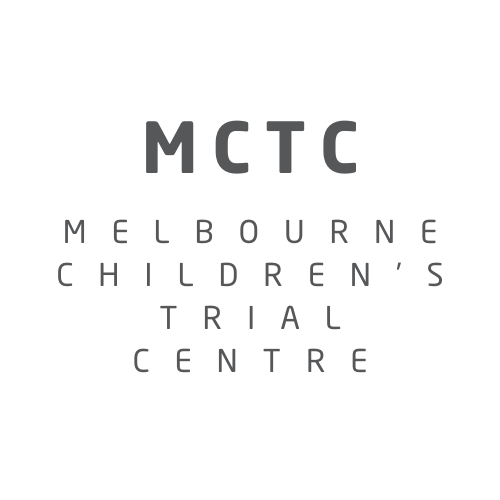Quality Management System
‘Quality is everybody’s responsibility’. A good Quality System supports the organisation to deliver high quality care to research participants by implementing systems and processes to prevent errors, improve research efficacy (reduce duplication of effort) and improve participant satisfaction.
‘Quality’ is not about the ‘quality police’ barking orders to report an adverse event, or to complete the CAPA plan, it is about building systems to help the workforce from leadership to frontline staff to embrace a quality culture of continuous learning and improvement.
Defining the Quality Management System
A quality system is a structured approach, documented through policies, procedures, and resources, that ensures an organization meets its quality objectives and policies. It encompasses the organizational structure, responsibilities, and processes needed to manage quality across all aspects of the business. Essentially, it's a blueprint for achieving and maintaining consistent quality in products, services, or processes.
The elements of the our Melbourne Children’s Clinical Trial Quality Management Systems are shown below:

Defining governance is crucial for establishing clear frameworks, promoting accountability, and ensuring effective decision-making within organizations. By defining governance, organizations can establish a clear understanding of their direction, support all stakeholders, and ultimately achieve greater success and stability.
Resources
One of the core functions of the Melbourne Children’s Trial Centre is to help everyone working in and supporting clinical trials to understand their role in quality and why this matters. Our Quality Team works together and in partnership with other research support groups on campus to run the Quality Management System that supports the Melbourne Children’s clinical trial ecosystem. Our team helps researchers on campus to comply with relevant regulatory and legislative requirements and understand their responsibilities.
Meet the Quality Team:
Kate Scarff: MCTC Quality Assurance Lead and CRDO Lead
Di Tucker: National Clinical Trials Governance Framework (NCTGF) Implementation Lead
Liz Webster: Clinical Research Development Officer
Iona Walton: Clinical Research Development Officer (Sponsorship & Regulatory Coordinator, Florence eBinder Administrator)
Sarah Rathjen: Education & Training Coordinator
Clearly defined roles and responsibilities are crucial for successful teams and organisations because they foster clarity, accountability, and improved efficiency. By understanding individual responsibilities, team members can focus their efforts, collaborate effectively, and contribute to shared goals.
Resources
Policies and procedures define acceptable practices and standardize processes, enhancing efficiency and minimizing risk. They clarify expectations, promote consistency, and support informed decision-making across the organisation.
Guidelines (guidance documents) outline recommended practices, offering flexibility in how they are applied. While they may be detailed, they are not mandatory and can be interpreted or followed partially, depending on the context.
Melbourne Children’s Human Participant Trial SOPs are housed on METIS.
Internal Audit
Internal auditing is a crucial element in the Quality System because it helps ensure operational efficiency, manages risks, and provides assurance to stakeholders. It acts as an internal check on suitability and adherence to SOPs, processes, and internal controls, identifying potential issues and recommending improvements.
Internal audits are a quality assurance activity and are conducted by someone who is independent of the activity being assessed. This is different to monitoring which is conducted by someone who is not independent of the activities being audited.
Examples of an audit that may be performed at any organisation, including the three Melbourne Children’s partners, are:
Ø System audits – looking at the functionality of a complete system, e.g. Florence eBinders, data governance/management, complaints management
Ø Process audits – looking at the performance of specific processes within systems, e.g. records of training, currency of certifications, assessment/reporting of safety events
Ø Vendor audits – assessment of external service providers
Ø Trial-specific audits – assessment of trial-related activities in accordance with the protocol, SOPs, GCP and applicable regulatory requirements
Ø Documentation audits – review of trial-specific or system documentation, e.g. protocols, interim reports, computer system validation package
Who can be an internal auditor?
Auditors must be independent of the activities being audited and report to independent lines of management. In a commercial organisation, the QA function will usually be a separate Quality department. However, smaller, non-commercial organisations, may have the QA function operate across departments on the provision that any individual internal auditor is not assigned to audit a trial run out of their own department.
Auditors must be trained, qualified and experienced. They require knowledge of the relevant regulations, National guidelines, local policies and procedures/SOPs relating to the activity being audited.
Melbourne Children’s Clinical Research Internal Audit Program
The Melbourne Children’s Clinical Research Internal Audit Program is part of the broader governance and quality assurance framework at the Royal Children’s Hospital (RCH). The program has 5 Lead Internal Auditors (from REG Office and MCTC) and several ‘volunteer’ internal auditors’ who are trained specifically for this program.
Internal audits are point-in-time checks to ensure research projects comply with protocols, Good Clinical Practice (GCP), Standard Operating Procedures (SOPs), and legal requirements. Audits may be routine or triggered by factors like risk level, complaints, random selection, or ethics committee requests.
Relevant SOP: MCTC199 SOP | Internal Auditing - Melbourne Children's Operational Document Database
External Audits & Regulatory Inspections
In addition to internal audits, externally-sponsored trials may have a Sponsor-initiated audit. The Sponsor may schedule an audit for reasons including:
· in response to serious non-compliance identified through site monitoring
· In preparation for upcoming regulatory inspection
· Oversight of third parties contracted for site monitoring
Trials using a medicine/biological/device intervention may also be subjected to a regulatory inspection. This may be by the Therapeutic Goods Administration (TGA) if the trial is conducted under a CTN/CTA or other international regulatory body.
RCH Research Ethics & Governance Office via [email protected].
MCTC Quality via [email protected].
RCH REG and MCTC Quality will work together to support your team through the external audit/regulatory inspection process.
Training and competency development are essential for both individual and organizational success. Training equips employees with the skills and knowledge needed to perform their roles effectively and efficiently, leading to greater productivity and job satisfaction. Competencies, meanwhile, encompass the integrated set of knowledge, skills, and attitudes required to excel in a specific role or context.
See more at CRDO Training.
Reporting adverse events and incidents is critical for enhancing patient safety and improving the quality of care by allowing for the detection of previously unknown or emerging safety concerns, as well as identifying trends that may indicate systemic issues. It enables regulators and healthcare organisations to take prompt action to mitigate risks, modify protocols, and prevent recurrence of similar events.
Resources
MCTC
RCH Procedure
Open disclosure following an adverse event/ clinical incident is important because it fosters trust, improves patient safety, and supports a culture of learning and improvement within healthcare organizations. When healthcare providers openly and honestly communicate about incidents or adverse events, it helps build stronger relationships with patients, their families, and the community. This transparency also allows for a more effective investigation and resolution of issues, leading to better patient care in the future. It is recommended that the Clinical Trials workforce completes Open Disclosure training.
Resources
RCH Procedure: Open Disclosure - Statutory Duty of Candour
RCH Training Open Disclosure, as an e-Learn and Simulation Training, at Course: Open Disclosure & SDC
Risk management helps organisations to proactively identify, assess, and mitigate potential threats, ensuring stability, and patient / participant quality and safety. It enables us to make informed decisions, provide high quality care, comply with regulations, and build stakeholder confidence.
Risk management is built into the clinical trials application process, through Research and Ethics Application and Sponsorship Committee.
Organisational responsibility for risk management in the delivery of clinical trials is overseen by the Melbourne Children’s Clinical Trials Governance Committee.
Resources
Terms of Reference: Clinical Trial Governance Committee
Consumer (this includes research participants) and researcher feedback provides valuable insights into consumer/ participant and researcher experiences, service needs, and service quality. This feedback helps us improve our services, enhance consumer satisfaction, and drive positive change. It also supports research by providing valuable context and perspectives from those directly affected by the work.
Resources
Information for consumers and participants is essential for empowering informed decisions, promoting engagement, and building trust. It allows individuals to make choices aligned with their needs, understand their rights, and participate more effectively in processes that impact them.
Resources
Consumer co-design systems are important because they ensure services are designed with the needs and preferences of the patients / participants/ consumers in mind, leading to more effective, user-friendly, and equitable outcomes. By involving consumers from the outset, co-design fosters a sense of ownership and empowerment, ultimately improving the quality of services and the overall experience of users.
Refer to the MCRI Consumer Involvement in Research webpage
Tools to assist in Involving Consumers in Research MCRI Intranet Toolkits
Quality improvement projects are essential in healthcare, as they directly enhance patient outcomes, boost operational efficiency, reduce costs, and improve satisfaction for both patients and staff. These initiatives also support compliance with regulatory standards and accreditation requirements, reinforcing an organization’s commitment to excellence.
Current Improvement Projects
|
Number / Date |
Project Title |
Brief Detail about Project |
Project Lead |
|
NCTGF 01 |
NCTGF Implementation |
Establishing systems across MCRI/RCH to meet accreditation standards under the National Clinical Trial Governance Framework |
|
|
NCTGF 02 |
Training & Mentorship Program |
Designing role-specific training and competency assessments, plus launching a mentoring initiative for clinical trial staff. |
|
|
NCTGF 03 |
Informed Consent Training Revamp |
Transforming the current workshop into a modular format aligned with campus-wide requirements. |
|
|
NCTGT 04 |
Research Participant Welcome Pack |
Designing a vibrant, participant Welcome Pack - created with research participants, for research participants! |
Measures and Key Performance Indicators (KPIs) provide a structured pathway to success by tracking progress towards strategic goals and enabling informed decision-making. They act as measurable benchmarks, helping us to understand how well we are performing, identify areas for improvement, and adapt to changing conditions.




